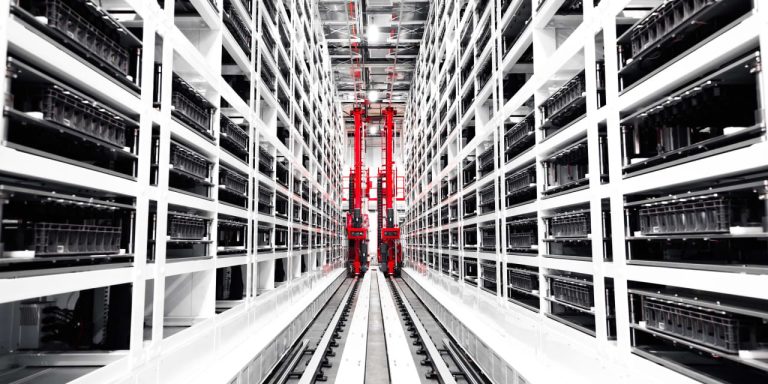About the author: Matthew N. Eisler is a historian at the University of Strathclyde and author of Age of Auto Electric: Environment, Energy, and the Quest for the Sustainable Car.
The electric-vehicle business presents a paradox. Virtually all auto makers now manufacture EVs. And yet the business seems like a slog for many. Auto makers including Ford Motor, Volkswagen, and
General Motors
have struggled to make money from the all-battery electric vehicle, or BEV.
Toyota,
the most successful established car company, initially opted primarily for the hybrid EV, which combines an internal combustion engine with battery technology. Even
Tesla,
the largest BEV maker, posted its first full-year of profitability only in 2021.
If it is so hard for auto makers to make a buck out of the BEV, why get involved at all? Why did Toyota prefer hybrids to BEVs? And why is Tesla such an outlier?
The current state of the industry traces largely to two decades of public policy interventions. Energy and environmental policies have woven a complex global network linking Asian-based EV technology suppliers and U.S. auto makers through a regulatory system that rewards Tesla and punishes manufacturers of mixed fleets.
When environmental regulators imagined clean vehicles, they thought mainly about air-quality outcomes and much less about the industrial and infrastructural disruptions caused by mandated technological change. That was notably true of the California Air Resources Board, which introduced a mandate in 1990 that auto makers produce some form of zero-emission vehicle, or ZEV. Other states followed.
In essence, the mandate forced auto makers to produce the all-battery EV. But that technology presented the century-old auto-making business model with a conundrum. Batteries are the single costliest (and most profitable) EV component, and they generally have shorter and less predictable life spans than the electric motors they power. So the business of BEVs is very substantially a business of big batteries, an enterprise historically outside the ken of auto-making. The battery-cell maker gets paid first, and the potential conflict of interest between an auto maker and battery maker in an EV battery replacement market has been a stumbling block.
From the late 1980s, Detroit became wedded to the profitable light-truck model thanks to the CAFE fuel-efficiency loophole. The industry lobbied to delay its ZEV mandate commitments in exchange for long-term research and development of advanced new power sources, including the hydrogen fuel cell, a device supported by federal technology policy. Air-quality regulators agreed, and rolled back mandate quotas in the late 1990s. Auto makers terminated first-generation BEVs, including GM’s EV1.
Dramatic events in the 2000s caused policy makers to reverse, and set the scene for today’s anomalies. The first was the surprise success of Toyota’s Prius hybrid. It used a moderately sized and relatively inexpensive pack of advanced cells made by Matsushita/Panasonic (and later through a joint venture). Detroit then had no similar products or industrial allies. While fledgling start-ups including Tesla were developing big-battery EVs, the traditional U.S. auto makers struggled to stay afloat as the economic crisis deepened from 2007. The massive federal intervention that ensued extended major assistance to legacy auto makers including GM, as well as Tesla.
Tesla emerged from the tumult enjoying unique advantages in the era of regulated technological change. It was able to take maximum advantage of the zero-emission credit scheme CARB devised in 2009, which allowed car companies to bank, trade, and sell credits earned for producing ZEVs. Because Tesla produced only all-battery EVs, it was able to sell all those credits to established auto makers with mandate commitments, for whom it was cheaper to purchase such credits than produce ZEVs at scale. Sales of ZEV credits provided crucial income for Tesla in the lean years and continue to constitute an important part of the company’s revenue.
When the rest of the industry finally entered the BEV space, it was without Tesla’s safety net and technological experience. Tesla collaborated with Panasonic, a company that had gotten a head start in EV battery manufacturing thanks to its own enduring partnership with Toyota in the Prius, which received U.S. tax credits. Underwritten by state and federal subsidies, Tesla became a haven for venture capital and a prime vehicle of U.S. environmental and energy policy. This status underpins the company’s outsize market capitalization.
Regulators’ preoccupation with air quality and auto electrification would seem to bolster the wisdom of an all-battery EV business model. But the relative lack of policy concern for industrial, infrastructural, and socioeconomic considerations in the EV revolution will likely limit BEV growth. As risk analyst Robert Charette observes, little has been done to prepare the electricity grid for rapidly growing charging needs, a problem compounded by the concurrent scaling of renewable energy. The other factor is weakening demand as the EV enthusiast and environmental activist markets saturate. Cost-conscious average motorists are less likely to be enamored with unfamiliar new technology.
Until these issues are resolved at a national level, the divide in U.S. auto-making between all-battery EVs and everything else will likely deepen.
Guest commentaries like this one are written by authors outside the Barron’s and MarketWatch newsroom. They reflect the perspective and opinions of the authors. Submit commentary proposals and other feedback to [email protected].
Read the full article here









